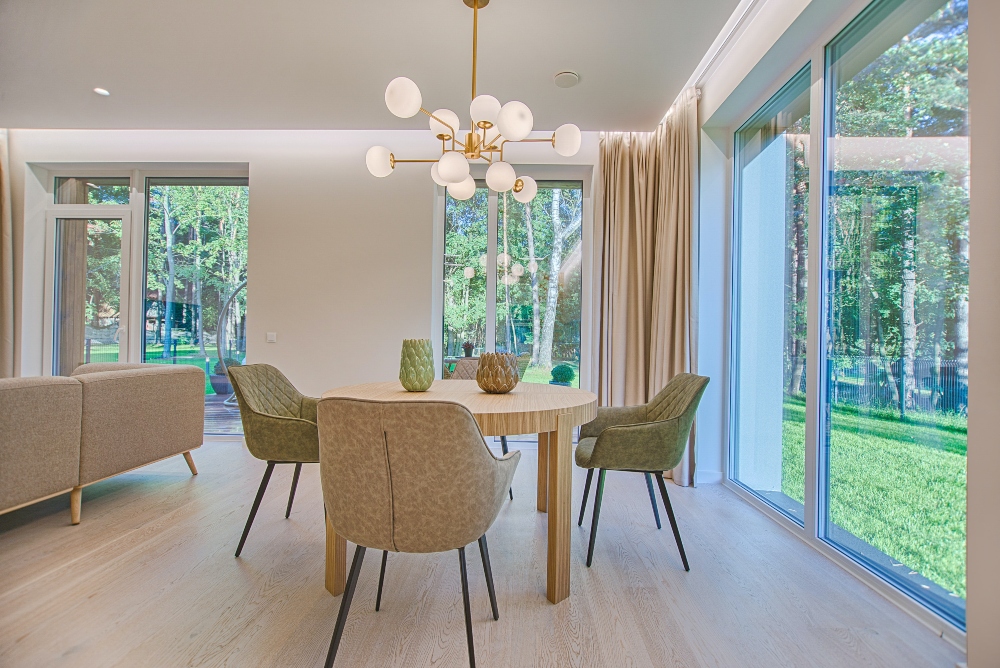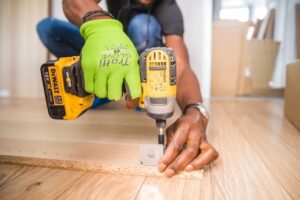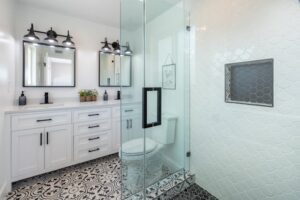
The image source is Pexels.
As a family caregiver, you have a responsibility to protect your loved one from potential dangers. One way to do this is by creating a safe environment at home. It can be difficult to know where and how to start, but here are seven tips that will help create a safer environment for your loved ones:
1. Fire Protection
Install smoke detectors on every level of the house and ensure an alarm system with a backup power supply. Regularly schedule a home safety inspection with your local fire department. If there are gas appliances in the house, install carbon monoxide detectors to ensure they’re safe and working correctly. Use non-combustible materials when building or renovating rooms that contain heating sources such as wood stoves, furnaces, space heaters, or fireplaces. Make sure there are two ways to escape from every room in the house. Keep furniture away from heat sources and electrical outlets where possible. Never place lamps on top of hazardous items like tables or dressers.
2. Home Repairs
Never attempt home repairs yourself unless you’re qualified. It takes specialized training to work safely on these projects. For example, there is a risk of gas leaks with any major plumbing project, so hiring an expert plumber can be more cost-effective in the long run. Never attempt to work on electrical problems yourself either, because this is a huge fire hazard and can cause injury if done incorrectly.
3. Security Cameras
You can invest in excellent security cameras for sale that is a great way to monitor your loved one’s activity at home. If you’re not sure where cameras should be placed, consult with an expert or read articles on the subject for suggested placement locations. Cameras are best used in public spaces like hallways and living rooms because they can detect motion. Static security cameras that don’t move with the person are ideal for in-house use. Fixed cameras can only record what they see at a given moment.
4. Preventing Accidents At Home
Make sure there are no tripping hazards in the house. Use string lights along with exterior entrances and walkways. Do not pile snow up too high against homes to prevent damage from heavy accumulations of ice or snow during winter months when weather conditions can make it difficult for your loved one to get out safely without assistance. Keep all electrical cords and wires tucked away from high traffic areas where they can get damaged, chewed on by pets or rodents, or be tripped over. Use scotch tape to secure them in place if necessary.
5. Let Kids be Kids
Install safety gates at the top and bottom of stairs, even when they’re carpeted. Keep window coverings closed in rooms where children play to prevent them from falling out of windows or climbing up furniture to access a table with an open window nearby. Never leave toys on raised surfaces like tables or dressers because kids can climb on them and fall.
6. Safety Measures
Install a home security system. Keep the house well-lit, especially in rooms where your loved one spends much of their time. A well-lit room prevents falls by ensuring there is plenty of light if they need to get up at night or during the day. Place both handrails and guardrails on stairways leading outside for safety when getting in and out of the house. Your loved ones should wear appropriate footwear when they go outside so that falls are less likely to occur.
7. Proper Disposal of Waste
Install covered trash cans to prevent rodents from getting into the garbage. If you have a septic tank, make sure it’s maintained regularly and that there are no leaks or cracks in its structure. Ensure all chemicals, paints, solvents, cleaners, fuels, and other hazardous materials are locked up securely so children cannot get them without supervision. Keep your loved one’s medications out of reach by storing them in a locked cabinet on the highest shelf. A medicine cabinet is also an excellent place to store the medicine.
Conclusion
Creating a safe environment at your loved one’s home is not an easy task. However, using the above tips and precautions will help ensure that they stay safe and secure at all times.


